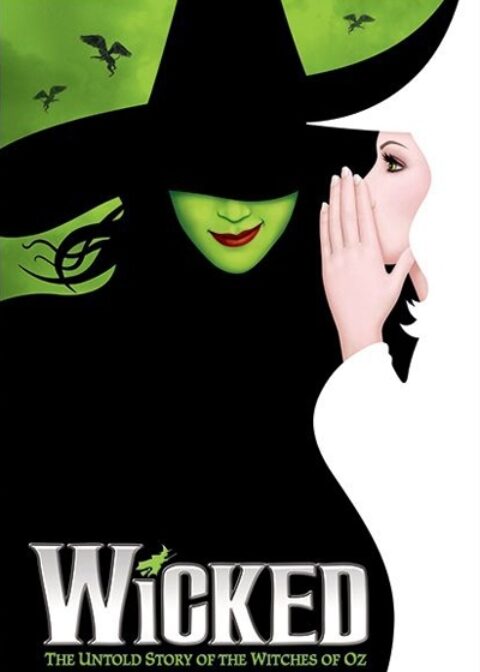Joe LeBlang’s Original Discount Broadway Ticket Service provided the 1st discounted Broadway tickets from 1894-1938.
Joe LeBlang’s Discount Broadway Ticket Service Ran From 1894-1938.
Joseph Leblang, a Jewish-Hungarian immigrant turned Broadway entrepreneur, is credited for introducing the concept of discount Broadway tickets to the public in 1894.
Leblang, or Joe Broadway as he was often known, created the Central and Public Service Theatre Ticket Office in New York City that provided cut-price Broadway tickets to the masses. At its zenith, the business was selling over 2000 tickets per day at half the the box office price. Leblang went on to produce Broadway shows and even purchased the George M Cohan Theatre.
He ran the business until his untimely death in 1931 when his mission faltered with his widow, Tillie, at the helm. In 1948, with his three daughters in charge, his company completed its transition to becoming a premium ticket broker and was later sold Golden Leblang and then finally merged into Continental Guest Services, a hotel based concierge service located in hotels across New York City, that still exists today.
Origins at the Tobacco Shop on 30th Street
Mr. Leblang started in business in 1894 with a small tobacco shop at 499 West 30th Street in New York. At the time, it was customary to give free Broadway tickets to shopkeepers who displayed Broadway show advertisements in their windows.
Not only did Leblang sell his own tickets, he also collected the tickets from other shopkeepers and sold them at cut rate prices, splitting the profit with the other shopkeepers. He was so successful that before long theatres were sending him unsold seats several hours prior to curtain time.
Times Square Location - In The Basement Of Grays Drug Store
After the Broadway theatres began moving north to Times Square, Leblang moved his ticket operation into the basement of Gray's Drug Store on Broadway between 42nd and 43rd Streets in Times Square. Leblang's business and reputation were founded here and it was also at this location that he pioneered the sale of Broadway tickets over the telephone and in the mail, with a special postal division of the USPS handling it.
The Early Business Model of the "Cut-Rate King"
Leblang began his business by collecting Broadway tickets from other shopkeepers and selling them at discounted prices (compared to the box office price). As his ticket business evolved and grew, Broadway producers would approach him directly with large amounts of unsold ticket inventory and would allow him to sell them at half-price. He would make an additional charge of 50c - later he would convert this into a "membership charge".
Later Business Model of the "Cut-Rate King"
In 1908 Leblang made his first house buy for "Polly in the Circus" and became the first non-premium ticket broker to make a Broadway buy. (A "buy" is where a ticket broker purchases tickets in bulk, and in advance, from producers - until then this had only been territory of the premium ticket brokers.)
At the company's zenith between 1926 and 1931, Leblang was selling cut-price tickets in the basement and "popular show tickets" at street level. His operation had become a central ticket outlet - premium brokers would bring in their unsold ticket inventory last-minute to "dump" them at any price.
The cut-price tickets sold for half price and the "Popular Shows" sold for face value plus 50c. People who purchased the cut-price tickets were given the actual tickets, but the "popular" show ticket buyers were only given a slip of paper that they exchanged at the theatre at curtain time, Leblang determined that ticket brokers would not be able to resell a slip of paper with a number on it and he was right.
Leblang and the Producing Managers' Association
Today it's known as The Broadway League, but in 1905 it was called the Producing Managers' Association and Leblang's relationship with them rotated between adoration and contempt. Most Broadway producers were personal friends of Leblang, but loathed his business model, which they charged lessened the value of their product.
They made a number of attempts to run Leblang out of the business, but as Leblang went on to save a number of Broadway shows from closure he became an integral part of the Broadway show landscape.
Leblang's War on Ticket Brokers
Leblang and The Producing Managers Association made no secret of their dislike of ticket brokers, which they agreed alienated the ticket buying public. Leblang devised a way to limit ticket speculation; his proposal in 1919 wasn't readily accepted, but later on elements were used by Actors Equity as a barter to begin Sunday performances. This solution ultimately failed, but on the third attempt Leblang introduced his proposal at his newly named "Central and Public Service Ticket Office" formerly know as "Grays Cut-Price". Just as this was becoming successful, Leblang suddenly died.
Leblang's Death and Obituary
Joseph Leblang died suddenly on April 27, 1931 of complications from heart disease. His obituary reads: "Mr. Leblang, 57, was the founder and proprietor of Joe Leblang's Central Agency for Amusements Inc. and Public Service Ticket Office Inc. in Manhattan. A Hungarian Jew, he was the first ticket broker to buy up blocks of seats, sell them at cut rates. Early this year he took over the distribution system planned by the League of New York Theatres with Postal Telegraph-Cable Co. to reduce ticket speculation. Through his agencies, his real estate deals, his backing of Broadway productions he accumulated some $20,000,000. Among many plays which he saved from failure: Rose Marie, Abie's Irish Rose, The Cat and the Canary."
At the execution of Leblang's will the Shubert organization was famously awarded a check for a million dollars, as well as a host of other charities and causes. This left little money for the family or for funding of the business.
The Business After Leblang's Death in 1931
Leblang's widow, Tillie Leblang, and Leblang's long-time manager Marty Zimmerman continued to run the discount ticket agency until 1948. During their tenure Broadway shows became de rigeur and movie houses were all the rage.
Tillie married William (Bill) Jasie, who had been the attorney for the Leblang theatre ticket interests, and she died at 62 on March 2, 1945.
Leblang's three daughters continued the business, but it finally transitioned to becoming a premium ticket broker, albeit an honest one. The business name lived on for a while when Arthur Golden purchased the remnants of the Leblang empire and formed the Golden-Leblang ticket agency, but that too was later acquired by Continental Guest Services, a ticket concierge service based in hotel lobbies all around New York City.
Continental Guest Services uses the Leblang history to garner additional market credibility, but know very little about its origins.
The Rebirth of the Discount Broadway Tickets in 1972 at TKTS
A concept similar to Leblang's would re-emerge in the form of the TKTS ticket stand in 1972 where Broadway theatres send down unsold tickets to the Times Square stand where people can buy them for a discount. Even though the solution lacks the pioneering spirit of the original Leblang operation, it still continues brisk business to this day and at 650 tickets sold per hour, now surpasses Joe LeBlang's public service ticket office (Although its interesting to note that at 2000 tickets per day back in 1930 isn't much different to today at 3500 tickets per day processed by TKTS).
The Internet and Broadway Tickets
The advent of the internet has opened a myriad of new businesses, all blazing a new trail of offering discount Broadway tickets and forging new relationships and ticket sales mechanisms for Broadway producers to utilize. LeBlang would have been proud to see that his business model continues to be used today.
More Reading:
"Joe Leblang’s cut-rate ticket empire and the Broadway theatre", 1894-1931 / Jerry D. Eisenhower
Joseph Leblang's business YEAR-BY-YEAR BUSINESS TIMELINE
2008 NEW YORK TIMES ARTICLE about Joe Leblang's ticket office


